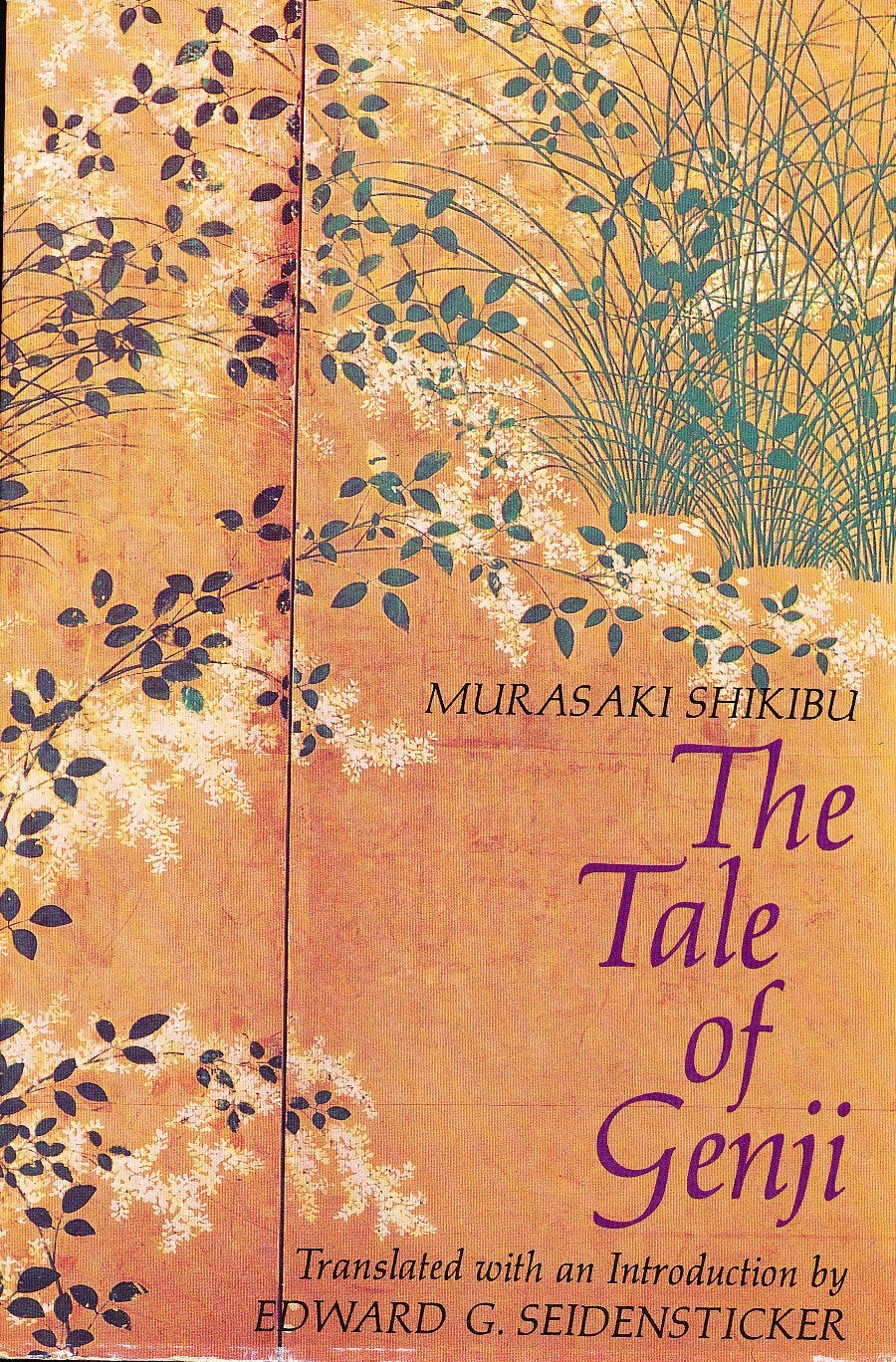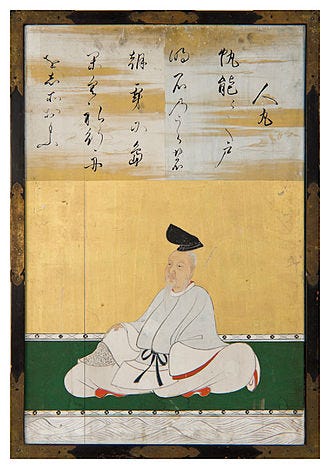He was a short, nervous, tightly-wound man. He always wore a coat and tie, most usually a bow tie—his dress was fastidious—which made him look like an accountant. His face was usually glistening with perspiration. His speech was somewhat pained, as if someone were forcing him to say words he never would have said otherwise.
He was Edward G. Seidensticker—that “G” followed him wherever he went—and he was a professor of Japanese Literature at the University of Michigan when I was enrolled there sixty years ago. He was my Magellan in the new world of Japan and its prose and poetry.
As a junior, I was looking to make the most of the four credits I could spend any way I wanted. I went to the Department of Asiatic Languages to consult with a graduate student friend who was majoring in Chinese. I had it in mind to take a course in Chinese literature.
“No,” he said, pulling out the course catalogue for the next semester. “Take this course.” It was Introduction to Japanese Literature, and the instructor had the unlikely name of Seidensticker.
“But…what about Chinese?”
“No. Take this course. He’s a giant.”
Edward Seidensticker was diminutive in stature, but, yes, he was a giant, although I didn’t know it at a time. When he walked into the classroom for the first time—I think there were just seven or eight of us—I thought, seeing how unlikely, how un-towering he looked, that I had made a grave error. I was thrown, too, by his choked, somewhat agonized way of speaking.
I got over that as soon as I started listening. What knowledge. What authority. What credibility.
I knew nothing—and I mean nothing—about Japanese literature. I didn’t even know there was any such thing. I certainly didn’t know that Edward Seidensticker was one of the great translators of Japanese literature. (His major opus, the translation of The Tale of Genji, was still to come, ten years later.) I didn’t know that he was a friend of Yukio Mishima and Yasunari Kawabata, Japan’s first Nobel Prize winner. And that, by all standards, he was one of the great scholars of Japanese literature in the world at the time.
In his class, we studied Japanese poetry and prose from the earliest days until the present. So, we read Arthur Waley’s translation of the eleventh century masterpiece, The Tale of Genji, by Lady Murasaki Shikibu—or, as Professor Seidensticker would prefer to say, the Genji Monogatari, giving it its Japanese name. Japanese vowels are pronounced like Italian vowels, so students could actually say some of the names of books and authors. It made us feel worldly.
We also read excerpts from Sei Shōnagon's Pillow Book from the tenth century. (You can read her “Hateful Things” in The Art of the Personal Essay, edited by Philip Lopate.) Professor Seidensticker talked about these books as if he had personally known their authors, and, who knows, maybe he had. But for me who, somewhere, knew he wanted to be a writer, who wanted to throw his lot in with that calling, it was the Japanese poetry, not prose, that Edward Seidensticker taught and discussed that grabbed me by the heart and still does.
In order to understand the full impact of this class, allow me to elaborate on my ignorance. To me, the idea that a culture other than our own could have produced poetry of the highest order in the 8th century was, well, inconceivable. But here was this somewhat agitated, sweating, highly intense man telling me about a compilation of Japanese poetry called the Man’yōshū—The Book of Ten Thousand Leaves, as he translated the title. This was a book, Japan’s greatest book of poetry, compiled sometime in the middle of the eighth century on which there were poems from the fourth century to the eighth. I have a copy, still.
The truth is, I wasn’t a good student. I don’t mean I wasn’t smart enough. I was lazy. I was what they used to call a malingerer. I was negligent. I skipped classes. I didn’t do the readings. I wrote mediocre papers. It’s far too late in the game to be ashamed of this, but what I am is slightly melancholy, a perfect Japanese emotion, one those ancient poets often spoke to when they wrote about the briefness of life and how we are reminded of that by nature, especially so in the fall when the leaves fall and geese are calling as they fly in chevrons overhead.
In his half-agitated, half-shy way, Professor Seidensticker revealed the great voices of the Japanese poetic past. I still remember the names sixty years later: Akahito, Yakamuchi, Okura and Otomaro. But the poet who I am forever grateful to him for introducing me to is Kakinomoto no Hitomaro. When Professor Seidensticker spoke of him, he had a faraway look, as if he were transporting himself back to the end of the seventh century when Hitomaro lived.
“Hitomaro was one of Japan’s six poetic saints,” the professor said, “and many think—as I personally do—that he was the greatest. We don’t know anything about him, except that he was married and had a child. It appears he was married twice. But it was about his first wife that he wrote so movingly and…so memorably.”
He had the Man'yōshū in Japanese as well as in English, and sometimes he would read us the Japanese first and then the translation. He did this with Hitomaro, and I wish I had the transliteration of the poem in Japanese, because I would print it here for you to read, even in this foreign language, the better to feel that moment when Professor Seidensticker read the Japanese words and, finishing, simply said,
“Wonderful. Wonderful.”
The poem he read from was “After the Death of His Wife.” He read the passage next in English:
In the days when my wife lived,
We went out to the embankment near by—
We two, hand in hand—
To view the elm-trees standing there
With their outspreading branches
Thick with spring leaves.
Abundant as their greenery
Was my love. On her leaned my soul.
But who evades mortality?—
One morning she was gone, flown like an early bird.
“Now,” he said, “if that doesn’t move you, there’s little I can do for you.”
Even then, as a punky, negligent college junior, I had to agree. What Kakinomoto no Hitomaro taught me was that this man with his “sleeves…wetted through with tears,” as he writes in his grief, could reach across 1300 years and touch me. That great art in its humanity is immortal. This man who walked the mountains in search of his dead wife, and who wrote, “But it avails me not, / For of my wife, as she lived in this world, / I find not the faintest shadow,” had the kind of compassionate heart I wanted to show on the page—if it was there, and I hoped and prayed it was. Hitomaro wrote the way I longed to write—he did in 690 AD!—and he wasn’t afraid. If I couldn’t stand beside Hitomaro, perhaps I could at least stand in his shadow, and that would be enough.
Professor Seidensticker led us through hundreds of years of Japanese literature, and he was a thrilling guide. But nothing, for me, equaled his talk about the Man'yōshū. I remember once he was talking about Ezra Pound’s translations from the Japanese. I don’t think he was too impressed. He had a kind of knowing smirk on his face and said,
“I really don’t think he knew much Japanese at all. I mean, it appears he always had help.”
But then he paused, and said,
“Well, but he did write, ‘Ariwara…Ariwara…Ariwara no Narihira.” It was music, as he said it to us. Then Professor Seidensticker titled his head and, with a small smile said, “He may have been slightly crazy, but once in a while, Pound did some wonderful things.”
As did Professor Edward G. Seidensticker, every day.








Very nice story, Richard.
Some of us were fortunate to cross paths with instructors such as Prof. Seidensticker. Just as some of us also regret not being a little more mature to make the best of it at the time. But we remember them and if we continue reading and exploring literature with them in mind, their work is done.
This is wonderful, Richard. He sounds quietly fantastic and I will add his translation of The Tale of Genji to my pretty much (embarressingly) untouched Japanese shelf. I came across The PIllow Book and loved it, and led some Zuihitsu writing sessions for a while - meaning "follow the pen" as you probably know. Then got into haiku and bought a book called The Land We Saw, The Times We Knew - an anthology of Zuihitsu that I simple HAD to have, but am yet to read. I'll let you know when it happens. Feels like a book to take away somewhere to savour. Really great post. I love his words: “Now,” he said, “if that doesn’t move you, there’s little I can do for you.”